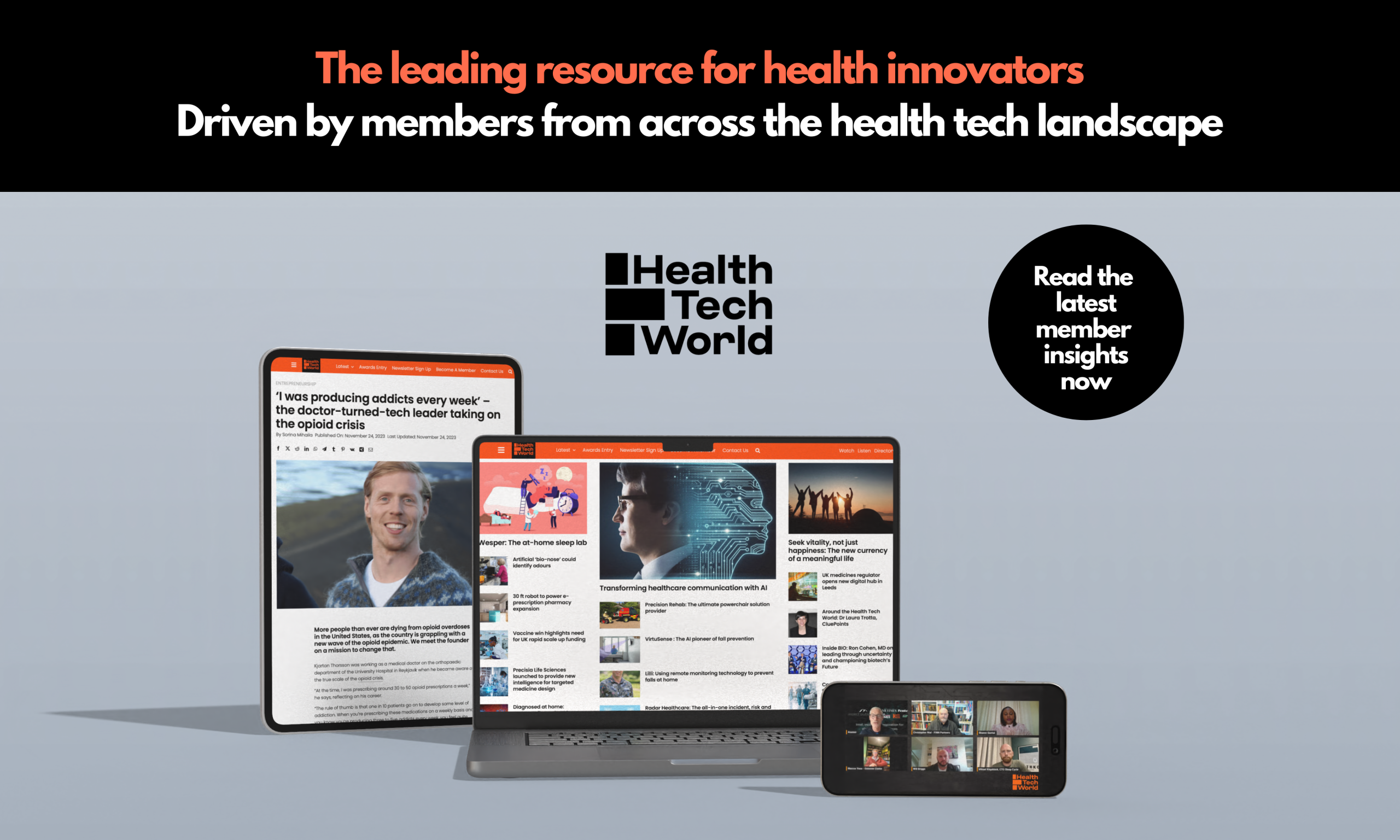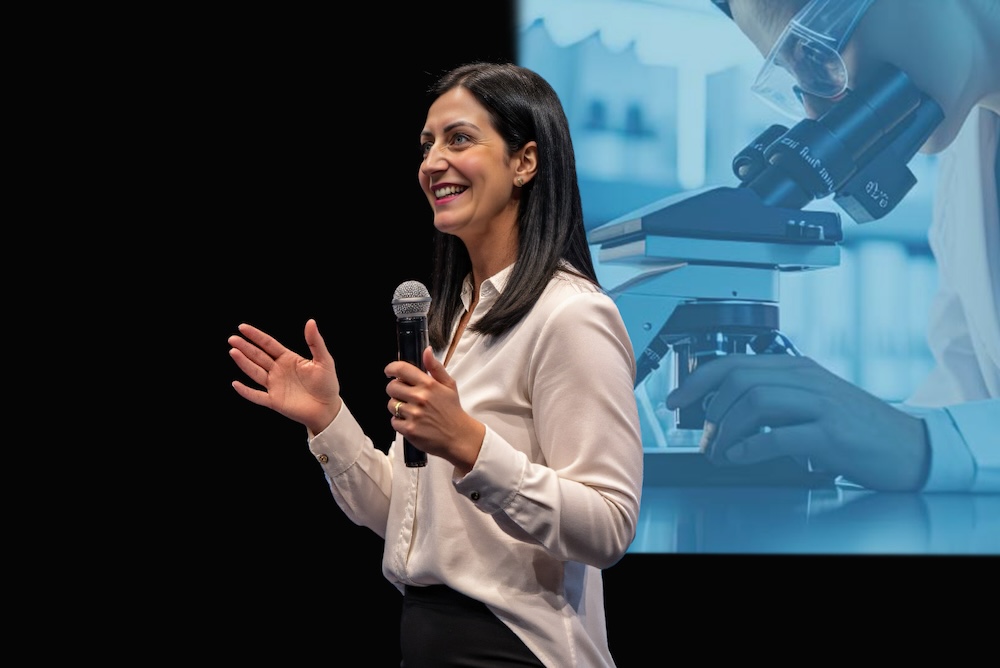Business roundup: AI platform to accelerate medical research and more

Health Tech World explores the latest business and pharmaceutical developments in the world of health technology.
AI platform to accelerate medical and epidemiological research
Health technology company Briya has announced the launch of Briya AIRE, the world’s first clinical-grade AI research assistant built to accelerate biomedical and clinical decision making.
Designed to “think” in the language of medicine, clinical research and epidemiology, AIRE turns months of manual data analysis into actionable insights in minutes to enable faster, cost-effective discovery across biopharma and academic research sectors.
Incorporating Briya AIRE into research and clinical practice has the potential to revolutionise medical care,” said Robert Brown, Vincent Astor distinguished professor of medicine at Weill Cornell Medicine.
Using AI to collate patient data and clinical evidence will allow physicians to make better decisions in a more efficient and timely manner while reducing administrative burden so they can spend more time interacting with and thinking about their patients.
Briya AIRE acts as a virtual epidemiologist and data analyst, helping researchers ask better questions and generate answers faster.
It is built to design patient cohorts, test hypotheses, refine study criteria, and identify data patterns otherwise missed.
By guiding researchers through these critical steps, it also helps optimise study design and accelerate discoveries that can impact drug development and patient care.
“Using the advanced NLP capabilities, we can now accurately identify patients with metabolic dysfunction-associated steatohepatitis (MASH) at significant risk of progressing to severe liver damage or cirrhosis, directly from unstructured clinical data across the healthcare ecosystem,” said Gadi Lalazar, head of the Liver Unit, Shaare Zedek Medical Center.
This ability to automatically analyse imaging reports opens the door to earlier interventions for these high-risk patients, and spells promise for its use in a wide range of indications.
Omni Health Ring launches EnerQi following US$300k kickstarter fundraise
Health technology company Omni Health has launched a new health metric called EnerQi for the Omni Health Ring smart wearable.
Omni Health Ring generates an AI-powered daily plan that works across food, movement, and rest. The plan is personalised to the wearer’s body signals.
The new health metric EnerQi is a comprehensive health index that includes sleep, exercise, stress, nutrition, and provides real-time updates based on the wearer’s behaviour.
The public launch on the company’s official website follows a successful Kickstarter campaign this past April, which raised over $300,000 from early adopters.
Hatteras Venture Partners raises over US$200m
Hatteras Venture Partners has announced the final closings of Hatteras Venture Partners VII (HVP VII) and Hatteras Opportunity Fund I with over US$200m in capital commitments from limited partners.
The fund closings come at a time as Hatteras has invested in its 100th portfolio company.
Hatteras began in 2000 with the closing of Hatteras Venture Partners I, LP, a seed-stage venture fund with US$2.93m in capital.
Today, the firm manages over US$900m in capital focused on seed- and early-stage companies in the health innovation sectors of biotechnology, medtech, and healthtech.
In addition to building the Hatteras capital base, the firm has made two important promotions within its team. Ben Scruggs has been promoted from principal to partner with a focus on biopharmaceuticals and tools investments.
Lauren Flickinger has also been promoted from principal to partner. Lauren joined Hatteras in 2021 from Morgan Stanley, where she was an investment banker.
Philips plans for US$150m for AI-powered health technology Innovations
Global tech giant Philips is planning new investments of more than US$150m in US manufacturing and research and development (R&D).
As part of the announcement, Philips has unveiled the expansion of its Reedsville, PA, manufacturing facility, which produces AI-enabled ultrasound systems for hospitals across the US.
These investments come on top of Philips’ annual US$900m R&D investment in the US as well as investments in nearly 17,000 colleagues across 40 facilities in the United States.
The investment includes the expansion of its Reedsville, PA, site and the recently announced expansion of Philips’ Image Guided Therapy facility in Plymouth, MN.
It also includes additional manufacturing and R&D projects which will come over the next several years to support the company’s growth in the US.
The Reedsville site, which currently manufactures transducers, will also customise the software and configurations of ultrasound systems for specific clinical procedures in cardiovascular, general and maternal care following the expansion.
As an example, Philips’ industry-leading CV ultrasound platform delivers advanced tools to help doctors diagnose structural heart and coronary artery disease.
The expansion of the Reedsville site is expected to add 24,000 square feet of manufacturing space in addition to 40,000 square feet of warehouse space and is expected to create 120 skilled manufacturing jobs.
The recently announced expansion of Philips’ image-guided therapy facility in Plymouth, MN, which includes the construction of a new medtech training center, is expected to create over 150 new jobs.
Collaboration to improve outcomes for patients with diabetes and chronic conditions
Humana and health technology pioneer DrFirst has announced the launch of a programme designed to close gaps in care for patients with chronic health conditions like diabetes and cardiovascular disease. The programme also aims to help health care providers take timely, informed action.
The first phase of the programme aims to increase the use of statin therapy among eligible patients, aligning with a key quality metric from the Centers for Medicare & Medicaid Services (CMS).
The use of statins for certain Medicare patients is associated with lower cardiovascular risk, better outcomes and reduced health care costs.
To address this, Humana is partnering with DrFirst to connect with prescribers within the clinical workflow.
Using the DrFirst prescription orchestration platform, Humana can now initiate new prescription recommendations for these high-risk patients and submit them to the health care provider for consideration. Providers can approve the prescription recommendation and generate a new prescription or note why it is not an appropriate choice for the patient.
“This partnership is about more than innovative technology; it’s about better patient outcomes,” said Laizer Kornwasser, DrFirst CEO.
“As a company dedicated to taking the friction out of health care, it’s especially meaningful to introduce an entirely new approach to medication management.”
Because DrFirst e-prescribing technology is used in over 270 EHRs, the prescription orchestration platform can be quickly implemented in workflow across care settings.
The collaboration builds on a decade-long track record of innovation between Humana and DrFirst.
In 2015, the companies partnered to introduce the first real-time prescription benefit tool, enabling providers to view patient-specific coverage, costs and prior authorisation requirements at the point of prescribing.










